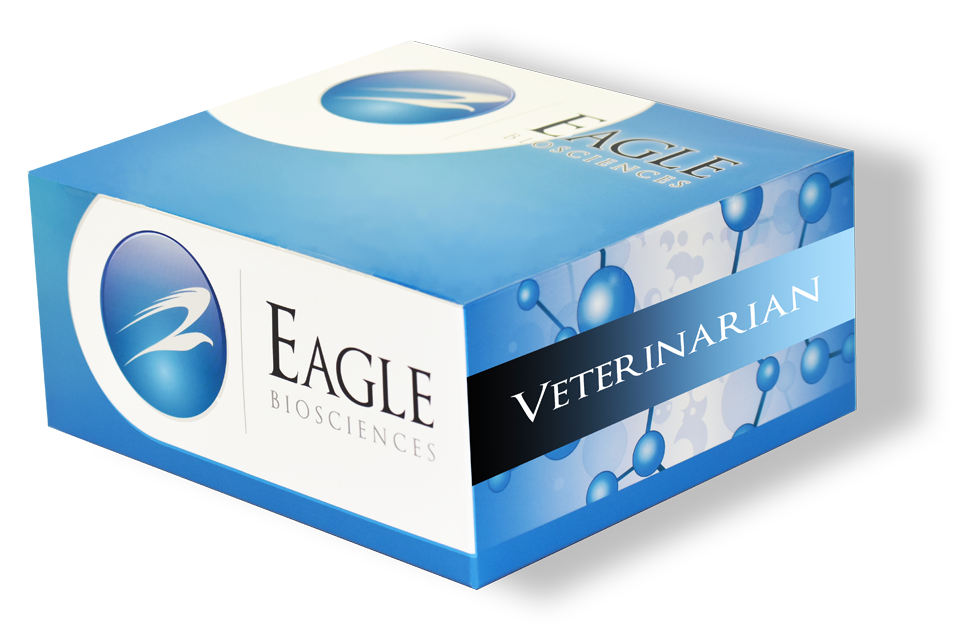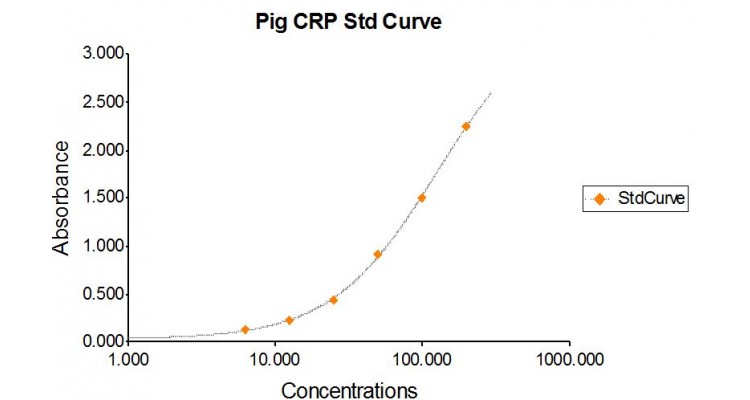C-reactive protein (CRP) is an acute-phase protein that plays a central role in the innate immune response. In pigs (porcine species), CRP is synthesized primarily by the liver in response to pro-inflammatory cytokines such as IL-6. Like its human counterpart, porcine CRP binds to phosphocholine on the surface of dead or dying cells and certain pathogens, activating the complement system and promoting phagocytosis. It is considered a sensitive and early biomarker of systemic inflammation, infection, and tissue injury in swine.
In a research setting, porcine CRP is widely used to monitor inflammatory responses in models of infectious disease, vaccine efficacy, and surgical or traumatic interventions. Because pigs are physiologically similar to humans, CRP measurements in porcine models provide valuable insight into the dynamics of the acute-phase response in translational studies. Clinically, CRP is increasingly used in veterinary diagnostics to assess health status, detect subclinical infections, and monitor responses to treatment in production pigs. It serves as a practical, non-specific indicator of inflammation, useful for early detection of health issues that may affect productivity or animal welfare.
This product is manufactured in USA by Eagle Biosciences.
| Size | 1 x 96 Well |
| Sensitivity | 2.150 ng/ml |
| Dynamic Range | 6.25 ng/ml – 200 ng/ml |
| Incubation Time | 70 minutes |
| Sample Type | Serum, plasma |
| Storage | 2-8°C |
| Alternative Names | Porcine C-reactive protein, Pig CRP |


